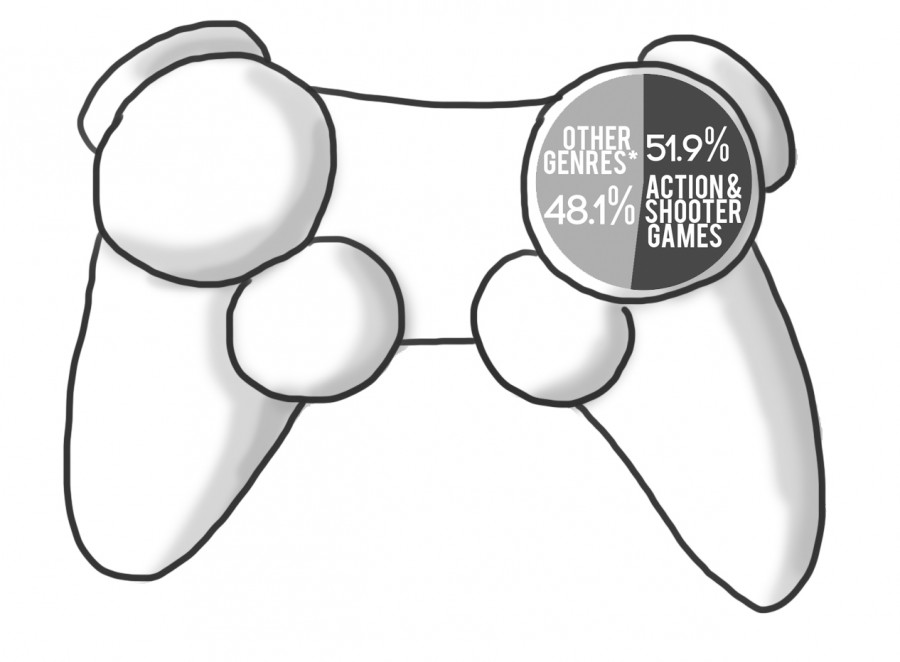Guns, blood, gore, fighting and profanity are what you will see in many of the video games of today.
Due to this, a debate has been sparked on whether these video games, with their violent nature and explicit debauchery, directly affect the user in a violent manner.
In the wake of many shootings and everyday acts of violence, this debate is very relevant.
Games like “Mortal Kombat” and “Grand Theft Auto” display acts of extreme violence and circumstances where people are shooting and evading the police or fighting in a rather gruesome manner.
All this means that people have a right and reason to be scared and look for the causes of these violent acts.
Since you see people doing seemingly exactly what characters in video games are doing and violence is ubiquitous, many would argue that these games are the reason for such behavior.
Doesn’t it make sense? It’s a very interesting argument and it deserves looking into.
Now although things like shootings and violence are very prevalent today, we must ask, does that mean video games are necessarily the reason for all of that? Wouldn’t we see people every day trying to specifically copy what they see in these video games?
Millions of people play these games, yet compared to the millions of video game players, only a handful commit acts like mass shootings.
There will always be outliers. Many people try to mimic and copy what they see on TV, whether it’s a game or a celebrity.
Also, wouldn’t research back up the claims that video games correlate to violence?
Yet, on psychcentral.com they reported a study saying, “The study published in the Journal of Youth and Adolescence, researchers found that the playing of video games actually had a very slight calming effect on youths.”
In a study called “Violent Video Games and Real-World Violence: Rhetoric Versus Data,” conducted by research scientists at Rutgers and Villanova Universities, it was found that violent video games actually don’t lead to increases in violent behavior.
Professor Markey, who was a researcher on the study, later said, “The biggest ‘take home’ of this study is that violent video games were not related to increases in violent crime – not even a little”
Although it is clear that through recent studies that violent video games don’t correlate to violent behavior, people still argue to the contrary.
In turn, many want these games banned or put on high restriction because of their promotion of violence.
This is alarming because it shows how people base much of their claims off of ignorance and emotion rather than actual facts. In turn, video games are unjustly used as scapegoats for violent behavior.
What about other media? Why aren’t violent TV shows and movies getting the same scrutiny as video games?
Markey said, “There is no evidence that, even in the laboratory, violent video games have a different effect on mundane acts of aggression than other forms of violent media”
To ban or restrict these games off of unfounded and unsubstantiated claims is dangerous because it shows us as a society basing emotion over fact.
When we look at something like a violent video game and automatically assume it must be the catalyst for violent behavior, without looking at other aspects of the individual or society itself, we are basing something off of what it looks like rather than looking at the facts; this is both sad and frightening.
Here at MTHS, a non-scientific survey was taken in early October during PASS period and not one out of the 45 people surveyed reported that they felt angry, mad, or violent after playing a violent video game, and no one believed that violent video games absolutely cause people to become more violent.
Now, a resolution to this debate would be for people to instead have the mentality of looking at the things around an individual that may influence them to do violent things. This would be mental health, family problems, the neighborhood or area they live in instead of looking at something like a video game and assume it is the reason for their violent behavior. Because looking at a violent video game and a violent individual and assuming that the game must be the reason for their behavior is ignorant.
As Professor Markey again said, “Finding that a young man who committed a violent crime also played a popular video game, such as ‘Call of Duty,’ ‘Halo’ or ‘Grand Theft Auto’ is as pointless as pointing out that the criminal also wore socks.”
So, this suggests that to say violent video games cause and contribute to violent behavior is an uninformed and uncorroborated opinion.
People need to stop blaming fictional games and start looking at the other factors of a person’s behavior.






